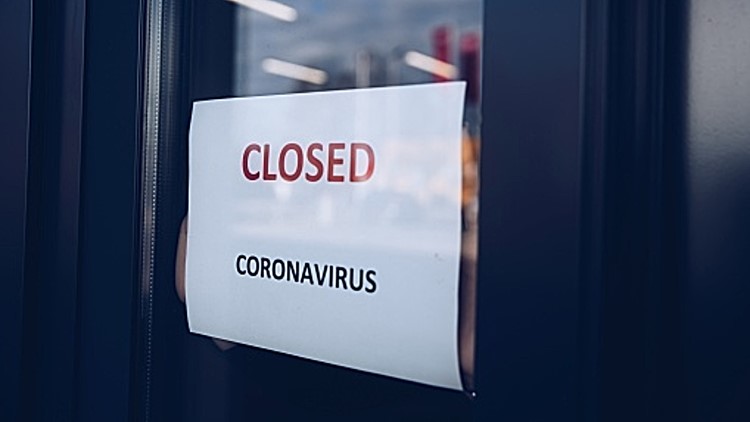AUGUSTA, Maine — Keeping small businesses afloat and their employees making a paycheck. That's the goal of the Paycheck Protection Program, a provision of the Coronavirus Aid, Relief, and Economic Security (CARES) Act passed by Congress and signed by President Trump last week.
Under the program, which was co-sponsored by Sen. Susan Collins, small businesses that maintain their payroll during the COVID-19 pandemic will be able to apply for 100% federally guaranteed emergency loans. These loans may be forgiven if borrowers maintain their payrolls during the crisis or restore their payrolls afterward. Loans can be up to 2.5 times the borrower’s average monthly payroll costs, not to exceed $10 million.
Jim Donnelly, Chief Commercial Officer at Bangor Savings Bank, one of the leading lenders for the Small Business Administration in Maine, says banks and other lending institutions are still waiting for the details. But he says they've been told the application process will be streamlined for simplicity and speed. "We're being told it will be a single page application," he says. (See video for more of our interview with Jim Donnelly)
A list of lenders offering the loans under the program is expected to be announced soon, after which businesses and self-employed individuals can begin applying for loans directly with a lender. Until that time, the Maine State Chamber of Commerce is encouraging them to get their paperwork in order and prepare to apply now. The Chamber has a guide and checklist on its web site to help business owners get ready.
“The rescue funding in the ‘Paycheck Protection Program’ of the CARES Act is critical to keeping Maine’s small businesses operating during this time and keeping Maine’s workforce whole,” says Maine State Chamber of Commerce President Dana Connors. “These loans will help them endure the pandemic and help mitigate its impact on Maine’s economy.”
According to the Chamber, businesses and 501(c)(3) organizations with fewer than 500 employees are eligible to apply for the emergency loans. Also eligible are sole proprietors, independent contractors, self-employed individuals who regularly carry on any trade or business, tribal business concerns that meets the SBA size standard, and 501(c)(19) veteran organizations that meet the SBA size standard. For businesses in the accommodation and food services sector (NAICS 72), the 500-employee rule is applied on a per physical location basis. For businesses operating as a franchise or receive financial assistance from an approved Small Business Investment Company, the normal affiliation rules do not apply. The 500-employee threshold includes all employees: full-time, part-time, and any other status.
A borrower is eligible for loan forgiveness equal to the amount the borrower spent during the 8-week period beginning on the date of the origination of the loan on the following items: payroll costs, interest on the mortgage obligation incurred in the ordinary course of business, rent on a leasing agreement, payments on utilities, and for borrowers with tipped employees, additional wages paid to those employees.
In evaluating eligibility, the CARES Act directs lenders to consider whether the borrower was in operation before February 15, 2020, and had employees for whom they paid salaries and payroll taxes or paid independent contractors. Lenders will request a good faith certification that the uncertainty of current economic conditions makes the loan request necessary to support ongoing operations and that the borrower will use the loan proceeds to retain workers and maintain payroll or make mortgage, lease, and utility payments. A personal guarantee is not required for the loan, nor is collateral. A lender will not consider whether the borrower sought and was unable to obtain credit elsewhere.
--
At NEWS CENTER Maine, we’re focusing our news coverage on the facts and not the fear around the illness. To see our full coverage, visit our coronavirus section, here: www.newscentermaine.com/coronavirus.



